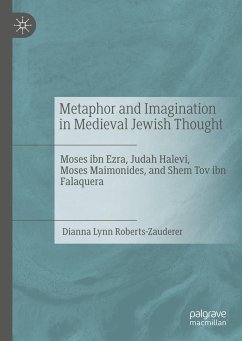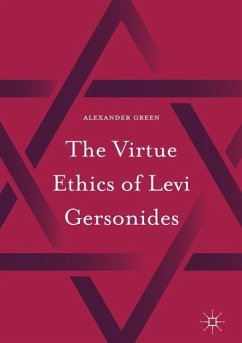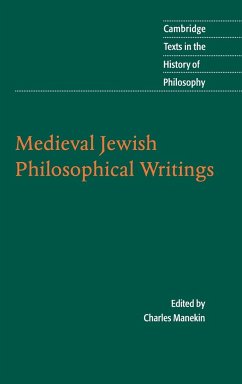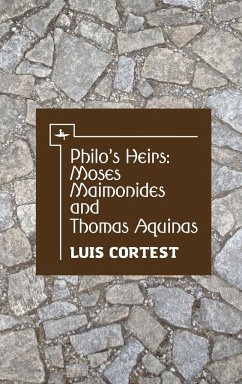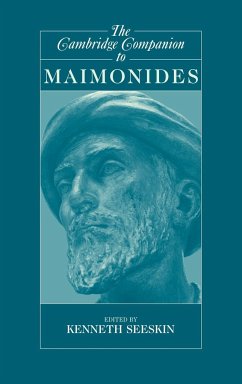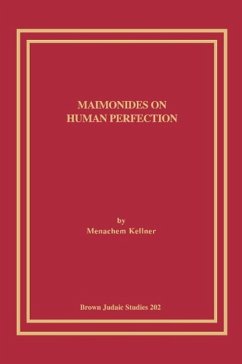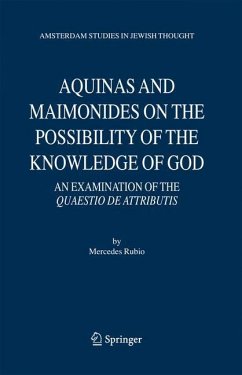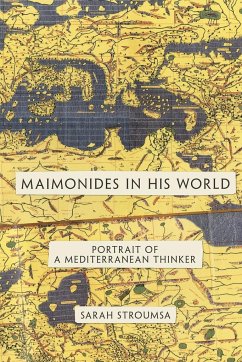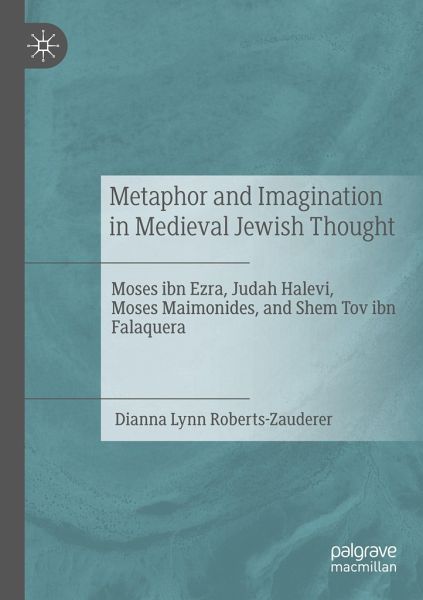
Metaphor and Imagination in Medieval Jewish Thought
Moses ibn Ezra, Judah Halevi, Moses Maimonides, and Shem Tov ibn Falaquera

PAYBACK Punkte
34 °P sammeln!
This book reveals how Moses ibn Ezra, Judah Halevi, Moses Maimonides, and Shem Tov ibn Falaquera understood metaphor and imagination, and their role in the way human beings describe God. It demonstrates how these medieval Jewish thinkers engaged with Arabic-Aristotelian psychology, specifically with regard to imagination and its role in cognition. Dianna Lynn Roberts-Zauderer reconstructs the process by which metaphoric language is taken up by the imagination and the role of imagination in rational thought. If imagination is a necessary component of thinking, how is Maimonides' idea of pure in...
This book reveals how Moses ibn Ezra, Judah Halevi, Moses Maimonides, and Shem Tov ibn Falaquera understood metaphor and imagination, and their role in the way human beings describe God. It demonstrates how these medieval Jewish thinkers engaged with Arabic-Aristotelian psychology, specifically with regard to imagination and its role in cognition. Dianna Lynn Roberts-Zauderer reconstructs the process by which metaphoric language is taken up by the imagination and the role of imagination in rational thought. If imagination is a necessary component of thinking, how is Maimonides' idea of pure intellectual thought possible? An examination of select passages in the Guide, in both Judeo-Arabic and translation, shows how Maimonides' attitude towards imagination develops, and how translations contribute to a bifurcation of reason and imagination that does not acknowledge the nuances of the original text. Finally, the author shows how Falaquera's poetics forges a new direction for thinking about imagination.





